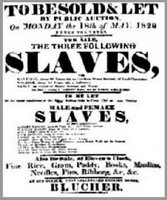
Christians are to be angry people. We are to be angry at many things:
We are to be first, angry at our own sin. Our sin is that which nailed Christ to the tree of the cross. We are to be angry that after we have been redeemed, we still have difficulties living lives of gratitude and thankfulness. We continue to sin and to struggle with sin all of our days.
Christians are also to be angry at the sin of others. When we see that God is being blasphemed we should not take this lightly. We are not to act in ungodly ways towards others, but this should spur us on to confrontation and to evangelism. Anger should motivate us to defend the rights of Christ.
When we see that the Church remains in a miserable state, refusing God's commands, refusing to walk the way Christ walked, and refusing to be a submissive bride- we are to be angry and we are to call out to God to right these wrongs. We are to encourage teachers in the Church to defend the bride and we are to diligently pray that she is reformed to what Scripture requires of the Church.
The Apostle Paul said to be angry and sin not. This tells us that the Christian is entitled to this emotion. This emotion, when harnessed and used for the glory of God, can be a great tool in the quiver of God. Anger should not make us desire our way or our rights; but it should make us cry out for the rights and ways of God. Righteous anger should make us herald proclaiming that which is godliness.
Friends, when is the last time that you were angry at your sin? Angry at a backslidden church? Angry at a world that despises God and Christ? Be angry and sin not.
"I never work better than when I am inspired by anger; for when I am angry, I can write, pray, and preach well, for then my whole temperament is quickened, my understanding sharpened, and all mundane vexations and temptations depart." -Martin Luther














